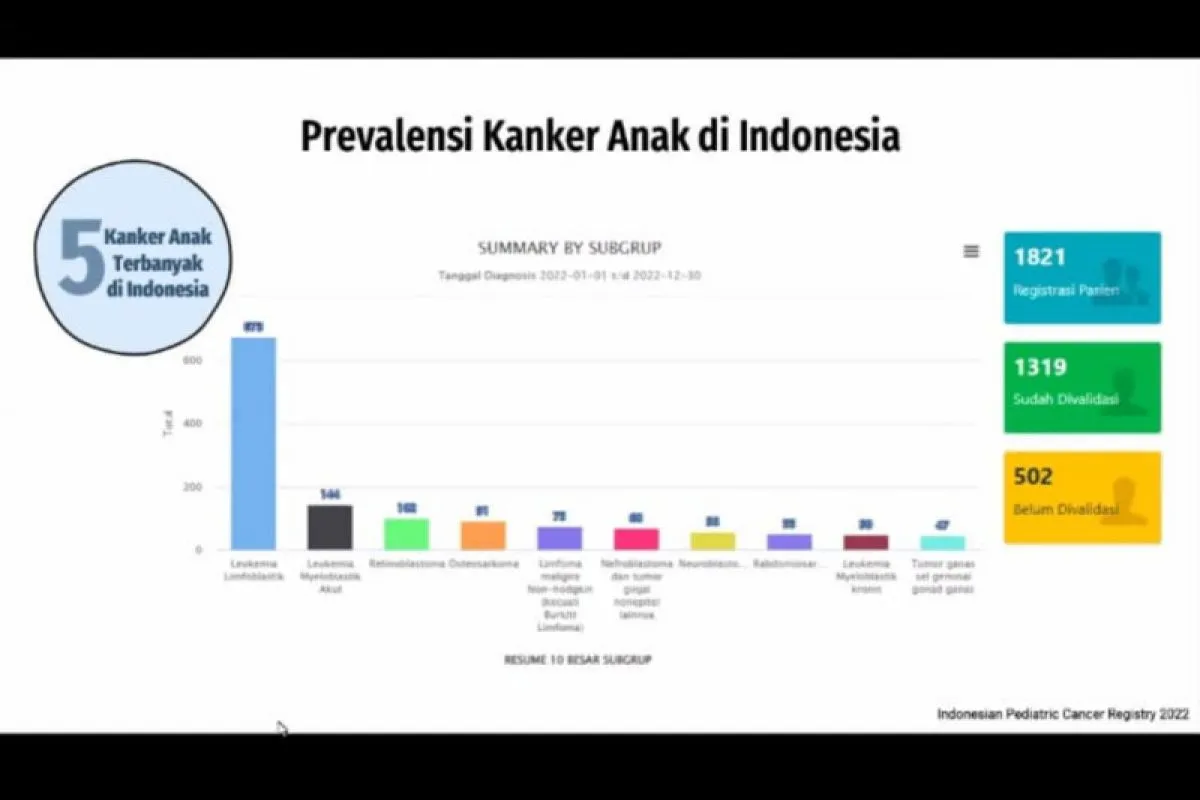
DiYES International School – Rising trend in childhood cancer cases is a growing concern in Indonesia. The Ministry of Health (Kemenkes) has estimated approximately 100,000 childhood cancer cases in the country. However, less than 10% of these cases are currently detected. Dr. Siti Nadia Tarmizi, Director of Non-Communicable Disease Control and Prevention at Kemenkes, highlights the increasing trend in childhood cancer cases.
Dr. Tarmizi explained that the rising trend is largely due to improvements in detection methods. “The trend is increasing because our detection methods have improved. Additionally, parents are becoming more aware of cancer types,” she said during an interview in South Jakarta on February 15, 2025. She pointed out that the Ministry of Health had only detected 12,000 cases of childhood cancer out of the estimated 100,000 cases in Indonesia. This emphasizes the need for more effective screening to identify these cases earlier.
“Read about: International Childhood Cancer Day 2025: Together, We Stand Strong Against Cancer!”
Several types of childhood cancer are becoming more commonly diagnosed in Indonesia. Among the most frequently detected are lymphoma and retinoblastoma, a type of eye cancer. Dr. Tarmizi emphasized that early detection is key for treating these types of cancer successfully. “It is important to know that 90% of childhood cancers can be cured if detected early and at the initial stage,” she stated. Early intervention is critical to improving survival rates among children affected by cancer.
Despite advancements in detection, significant challenges remain in addressing childhood cancer in Indonesia. One major challenge is that most cases are diagnosed at advanced stages. Late-stage detection greatly reduces the chances of successful treatment and recovery. The Ministry of Health is working hard to improve early detection programs. However, there is still much work to be done to raise awareness and ensure more children receive the necessary care before the cancer spreads.
“Currently, the government is facing a large task related to childhood cancer. Many of these cases are discovered at later stages, which lowers the chance of recovery,” Dr. Tarmizi explained. She stressed that it is crucial for both parents and healthcare providers to be vigilant about recognizing the signs of childhood cancer at early stages.
The key to improving survival rates for children with cancer is early diagnosis. Dr. Tarmizi emphasized that early detection allows for more effective treatment options. In fact, children diagnosed with cancer in its early stages have a much higher chance of survival. Unfortunately, many children in Indonesia are not diagnosed until the cancer has already reached an advanced stage, which decreases the effectiveness of treatments.
Early detection efforts are essential for reducing childhood cancer mortality rates in the country. The Ministry of Health is committed to raising awareness about the importance of recognizing symptoms early and seeking medical attention right away. By improving early diagnosis, more children can receive life-saving treatment before their condition worsens.
“Read more: The Role of Parents in Enhancing Children’s Hard Skills”
Dr. Tarmizi also spoke about the importance of offering support to families affected by childhood cancer. She reassured that families facing a cancer diagnosis are not alone. “If we or our family members are diagnosed with childhood cancer, they will not be alone. There are many support groups and resources available to help them,” she said. These support networks provide families with the information and emotional support they need during such a difficult time.
The Ministry of Health is working to connect families with these resources and offer guidance throughout the treatment process. In light of the rising trend in childhood cancer cases, emotional and psychological support is crucial for children and their families as they navigate the challenges of cancer. In addition to medical treatment, the government is committed to ensuring that these resources are more accessible to families in need. By focusing on early detection, raising awareness, and providing support, Indonesia can better address the growing challenge of childhood cancer.